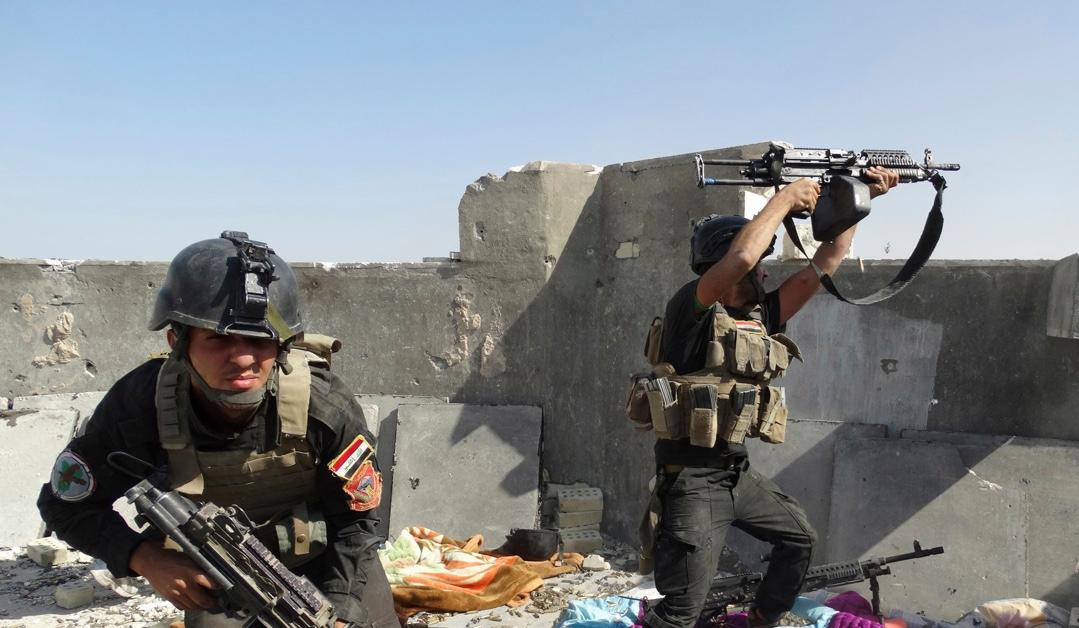Iraqi forces might finally take Ramadi back from the Islamic State
Members of the Iraqi Special Operations Forces take their positions during clashes with the Islamic State in the city of Ramadi on June 19, 2014.
NEED TO KNOW:
At the end of May, the Islamic State took the city of Ramadi. The provincial capital is a key Iraqi city only 60 miles from Baghdad. It was a huge gain for the Islamic State and a huge loss for Iraq. For the next seven months, Iraq and its American advisers planned a way to retake it.
That offensive started several weeks ago and has been slow going. But for the first time, Iraqi soldiers finally penetrated the city’s center on Tuesday, trading fire with Islamic State militants.
Officials estimate there are between 600 and 1,000 Islamic State fighters in Ramadi. And several hundred of them have been killed in airstrikes and other fighting in the last couple weeks. The Islamic State is severely outnumbered but is putting up a fight nonetheless. Iraqi officials said the militants had destroyed bridges to slow the advance and were meeting Iraqi soldiers with heavy fire.
The Islamic State swept through large portions of Iraq last year, taking control of a number of major cities and prompting an air intervention by the United States. Airstrikes, however, are little help in cities with high civilian populations.
So it has been largely up to the Iraqi army, with the help of a contingent of Sunni tribal fighters, to fight back. They have scored a number of recent victories. In April, they reclaimed Tikrit. In October they took back control of Baiji and its all-important oil refinery. And more recently the army drove Islamic State fighters from Sinjar.
Mosul, however — one of Iraq’s largest cities and the first to fall to the Islamic State — remains very much under the terror group's control.
WANT TO KNOW:
In early November, a lot changed for Myanmar. The National League for Democracy defeated the military junta that had controlled the country for decades in what appeared to be free and relatively fair elections.
The NLD is the party led by Nobel Peace laureate Aung San Suu Kyi. It was a landslide victory. And it meant that the NLD now holds a majority in parliament. It also means that for the first time in 25 years, Myanmar’s military won’t be running the country. It’s an incredible turnaround for a country that not too long ago was as isolated as North Korea.
Myanmar’s seat of a government is a city called Naypyidaw. The city was built from scratch by the junta in 2005. There is little else there except for the government, which includes some 664 lawmakers. The membership of that group is about the change dramatically: Before the election the NLD had 40 seats. Not it has 390.
There might be some tension as they move in, but not necessarily the tension you'd expect. In Naypyidaw, most of the lawmakers live together in what are essentially dorm rooms for the several months that parliament is in session. They're about to get a whole bunch of new roommates. It would be a fascinating place to be a fly on the wall.
STRANGE BUT TRUE:
Part of the reason space exploration is so expensive is because it’s so wasteful. You spend millions upon millions on a rocket to take someone or something into the great unknown, and when it returns (if it returns) it’s in pieces and unusable.
But what if you could reuse it? What if you could get in a rocket, go to the moon, and come back? And then do it again next week? Thanks to SpaceX, the private space exploration company, that reality may be close.
SpaceX just launched a rocket into space carrying a commercial satellite. Then the rocket came back. It was a first. And while it might irk some at NASA that this private company is muscling in on the final frontier, it’s actually really good for the government agency. The cheaper it can do what it does, the more likely it will be around for awhile.
